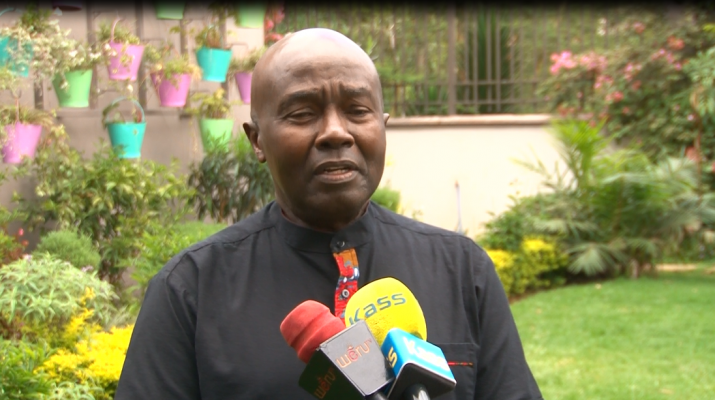Kenya still faces significant challenges in mobilizing and using available national resources to meet its development goals.
With the declining donor financing, it therefore imperative that the government put increased emphasis on mobilizing additional domestic resources for the health sector.
Speaking today during a per-conference on sustainable domestic financing for HIV Services in Nairobi, National Aids Control Council (NACC) NACC Deputy Director, Policy, Monitoring and Research Vernon Mochache Oyaro, explained that the management of HIV/AIDS infections is facing pressure owing to declining funds especially from the donor community.
“There is pressure on the control of the pandemic due to resources reduction. Even the continued budgetary allocations in the past years have not helped either. For example, the funds drop is making it hard to manage the current 1.5 million HIV/AIDs infected out of which 1.2 million are on antiretroviral therapy,” Dr. Mochache.
He added that there will be need to explore new resource mobilization strategies with a view to ensure the handling of the scourge is not interrupted.
Dr. Mochache further stated that the debate in today’s meeting seeks to explore the prospect of local manufacturing of affordable HIV commodities, to leverage on economies of scale.
Matungulu Member of Parliament Stephen Mule and a member of the health parliamentary Caucus stated that the donor financial basket on funding the HIV/AIDS has been dwindling over the years.
“This prompts new thinking to prevent disruption of the management of the scourge and as well as ensuring the health sector remains vibrant.
Mule urged stakeholders to agree to fast track various options geared towards enhancing health financing.
“Using the provision provided for under the County Health Act, stakeholders need to prevent diversion of resources meant for health services to other uses. Ensure prudent procurement of goods and services in the sector and push for quick implementation of the UHC,” said Mule.
He urged stakeholders to embrace innovation in terms of response mobilization giving an example of the mobile and internet banking which can help in supporting grassroots health service providers and exploiting opportunities provided by the Finance Bill 2021.
Kenya Private Sector Alliance Foundation (KEPSAF) chairman Patrick Obath said that even as finance in the health is required due to dwindling donor contribution, there is need for integrity when it comes to the resources.
” The private sector is very keen in the provision of services within the country, but one of the key things the private needs in assurance is that there will be integrity and full transparency in the implementation of universal health care”, he noted
Both Governments, he said need to ensure the health systems are effective to restore investors’ confidence.
Prof. Wainaina Gituro from the school of business University of Nairobi said sustainable domestic financing of HIV services needs to be up scaled going forward owing to the continued reduction of the donor input.
There is need for the stakeholders to develop strategies geared towards tapping local sources like the Retirement Benefit Authority, diaspora remittances and National Social Security Fund push for effective use of the paid taxes,” said Professor Wainaina.
“Government cannot do business with government. Let them come in as a regulator and let the private sector bring in their efficiency”, he said giving an example of MPESA and COCA-COLA companies which are privately owned but their reach to the furthest areas unlike Medicine which is inaccessible
Yesterday, the National Treasury and Planning Cabinet secretary Ukur Yatani while reading the 2021/22 budget statement allocation of Ksh47.7 billion to finance activities and programmes for the attainment of UHC and set aside Ksh 5.8 billion for lowering cases of HIV/AIDs, Malaria and Tuberculosis in the country.
Development partners have of late reduced their financial and material support to the management of the HIV/AIDS and with the recent economic downturn resulting from the effects of the Covid-19 pandemic this has compounded the outlook for healthcare funding, including HIV thus posing danger to the achievement of the Universal Health Coverage (UHC).
The United States Agency for International Development (USAID) noted that management of HIV/AIDS heavily depends on financial support from the donor community to the tune of 68 per cent.

